Japan was the big winner at this year’s Moscow International Film Festival which ended on Saturday evening with the Golden St. George trophy for best film going to Kazuyoshi Kumakiri’s My Man (Watashi-No Otoko) [pictured].
The film, which also received the Silver St. George best actor honours for Tadanobu Asano, had its international premiere in Moscow and was the first Japanese film to win the grand prix since Kaneto Shindo’s Will To Live received the honour in 1999.
Kumakiri could not be at the gala ceremony in the Rossiya Cinema in person since he had travelled on to a film festival in Taipei.
On his and Asano’s behalf, an attaché from the Japanese Embassy in Moscow accepted the prizes and read out long messages from the two winners - much to the amusement of the gala audience who had already been treated to an extensive monologue from the veteran Russian actor Alexey Balatov, who lifted the secret on the title of his most famous film The Cranes Are Flying.
Moscow’s main competition jury, headed by veteran Russian director Gleb Panfilov, awarded its Jury Special Prize to the Turkish co-directors Hakki Kurtulus and Melik Saracoglu’s Eye Am (Gözümün Nuru) based on Saracoglu’s own real-life experiences of almost going blind.
Speaking in Russian acquired during his time as a film student at Moscow’s VGIK in the 1980s, jury member Abderrahmane Sissako from Mauretania handed the Silver St. George for best director to Russia’s Valeria Gai Germanika for her second feature Yes And Yes.
Screening in Moscow after its world premiere in Hong Kong last March, the film has divided Russian critics into two camps, while Germanika seemingly lived up to her enfant terrible image by only muttering three words (¨Spasiba. Cruto. Class¨) before making a rapid exit from the stage (in her defence, it must be said that she had not attended the independent juries press conference earlier in the day due to illness).
And announcing the winner of MIFF’s documentary film competition, UK film-maker Sean McAllister said that it had been ¨a difficult choice to find a winner¨, but the three-person jury had finally decided on the Polish film Deep Love by Jan P. Matuszynski
Spotlight on Ukraine
The current situation in Ukraine came to the fore when the Silver St. George for best actress went to Ukrainian actress Natalka Polovynka for her performance in Victoria Trofimenko’s feature debut Brothers. The Final Confession.
Accepting the award on Polovynka’s behalf, Serhiy Trymbach, President of the Ukrainian National Film-makers Union, said that he was ¨very grateful¨ for the support from Russian film-makers and representatives of cultural life for the colleagues in Ukraine.
At the request of Brothers’ producers, he recalled told the audience about the fate of the Ukrainian director Oleg Sentsov - ¨leading film-makers from around the world have asked for him to be freed because he is a genuine person¨ - and proposed that an appeal be made to President Putin to take action for Sentsov’s release.
In his closing words before officially bringing the curtain down on the 36th edition, festival president Nikita Mikhalkov remarked that he was¨really grateful¨ that Trymbach had mentioned the case of Sentsov: it would now receive attention at the highest level since the gala would be broadcast on national television.
Culture — outside of politics
He called on more solidarity being shown to colleagues, adding that he hoped that, ¨one way or another, a future festival should avoid pressure being exerted on us. Culture is outside of politics, we are creative artists.¨
Earlier in festival week, the Memorial human rights organisation had organised a special screening in Moscow of Sentsov’s debut feature Gaamer.
Radio Free Europe/Radio Liberty quoted MIFF programmer and leading Russian film critic Andrey Plakhov as saying before the screening on June 25 that Sentsov is “a man of ideas, but absolutely nothing outlandish, by no means extremist. To the contrary, his ideas are very normal and productive. This is an absolutely creative person, a person whose primary aim is to create. That’s why what is happening is especially bitter. We understand that the film world may lose a talented person. We don’t have many of those.”
Mikhalkov added that many invited foreign guests had turned down the chance to come to the festival ¨because they were sick or pretended to be busy. We didn’t have any stars from overseas, but so what! It’s a film festival!¨
However, he pointed out that the sanctions had not any effect on Muscovites’ hunger for the festival line-up of films, with some 75,000 admissions posted for this year’s edition.
Germanika nabs another two
Ahead of the evening’s ceremony, the independent awards were announced to the assembled press. Before announcing the FIPRESCI International Critics Prize to Germanika’s Yes And Yes, French critic Gideon Kouts declared that he and his four colleagues from Germany, Chile, Russia and Germany were ¨all against any cultural boycott¨ of Russia, but, at the same time, championed the freedom of artistic expression.
¨We hope that the Russian and international public can see the film we have selected and any other film in the original version which represents its creator,¨ Kouts said.
The choice of Germanika’s film was especially pertinent and topical in the light of the new anti-obscenity legislation set to come into effect on July 1.
There had been concerns that the film might be denied a theatrical release because of its extensive use of swearwords, and producer Fyodor Bondarchuk had suggested that bleeps might have to be inserted over the four-letter words if the film was obtain a distribution certificate.
In the event, the producers have organised a release of the original version of the film in a select number of cinemas such as Moscow’s Pioneer and Gogol Centre for the last three days of June (28-30). Yes And Yes also received the Kommersant Weekend prize.
Other awards
The NETPAC Jury awarded its prize ex aequo to Kazakh film-maker Zhanna Isssabayeva’s drama about two girls from an orphanage, Nagima, and the Turkish film Eye Am which also received the Russian Film Clubs Federation’s prize.
Russian film-maker Vladimir Tumaev’s Tundra-set White Yagel just pipped Doris Dörrie’s The Whole Shebang (Alles inklusive) to the post for this year’s Audience Award for best feature film, while the festival-goers picked Nadav Shirman’s The Green Prince as the most popular title in the Documentary Competition.
The Russian Film Critics Award went to the Ukrainian competition entry Brothers. The Final Confession, while the Film Clubs’ prize for the best film in the festival’s Russian Programme was taken by Oksana Bychkova’s Another Year.
In addition, Anton Corbijn’s A Most Wanted Man - celebrating its European premiere in Moscow after the world premiere in Sundance at the beginning of the year - attracted the top rating of votes submitted by the Film Clubs’ regional members.
Delicate matter of anti-obscenity
Speaking to Screen Daily, Nikita Mikhalkov said the effect of Russia’s new anti-obscenity law on the future programming of the festival in the coming year was “a delicate matter”, explaining that swearing is “a most sophisticated aspect” of Russian people’s makeup.
He argued that “the law is for the people, and not the people for the law…They may have to make some corrections, but not change the whole law. And it may be necessary to look at the individual cases.”
At the same time, he observed that the festival would fight for a film next year if there was a danger that the legislation could come into conflict with their programming.
Zyagintsev in Moscow
The uncertainty of how the law would be applied resulted in Andrey Zvyagintsev’s third feature Elena being presented in Moscow during the festival week in possibly its last public screening in the original version as part of the 35mm Cinema’s Kinoprizyv programme.
The audience at 35mm heard that Elena would require a new distribution certificate under the new law because of the presence of three swear words, but Zyagintsev said that there will not be any re-editing of Leviathan for Russian theatrical release. He intends for his original version, which won the screenplay prize in Cannes last month, to be released in the second half of September.
The gala closing ceremony of MIFF’s 36th edition was followed by the world premiere of Matt Reeves’ Dawn of the Planet Of The Apes and a party on the banks of the River Moskva in Gorky Park.




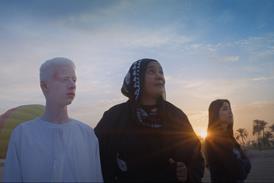

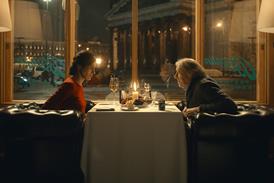



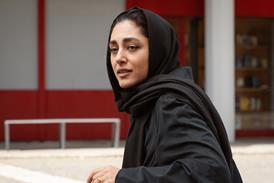



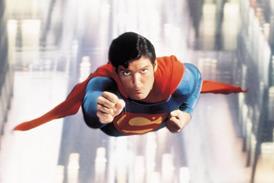

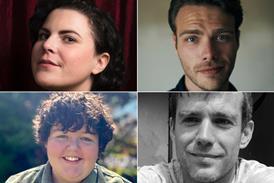




No comments yet